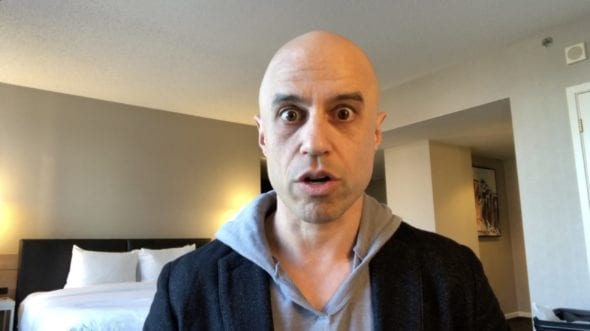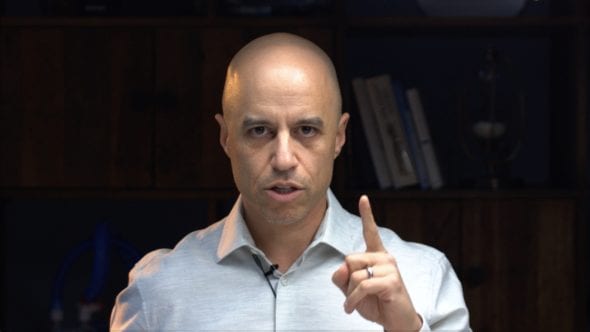It’s time we stopped with the victim shaming…and started calling it like it is.
So many of us in healthcare feel overwhelmed, demoralized, exhausted, cynical, afraid, and alone. It has to be our fault, right? We’re not resilient enough, we don’t work hard enough, we’re not efficient enough, we’re not good enough people to be taking care of others. Hell, we can’t even seem to take care of ourselves, let alone everyone else. We’re “burned out,” they tell us.
What if we’re all wrong? What if it’s not us, it’s them? A broken system destroying idealistic, good people en mass. A crisis.
Dr. Wendy Dean and Dr. Simon Talbot brilliantly explain the crisis of “moral injury” in this STAT News piece. It is a must-read.
Check out the original Facebook video here and leave your thoughts and comments. If you’re running short on bandwidth and phone battery life, you can listen to the optimized audio-only podcast version here on iTunes and Soundcloud. Please subscribe and leave a review, it helps us a lot! The podcast is now available on Spotify as well, spread the word! Full Transcript Below.
What’s up everybody? It’s Doctor Z.
Okay, listen. I’m really, really, really tired of people calling it “burnout.” What over fifty percent of health care professionals are experiencing, they call it burnout.
It’s exhaustion, low productivity, and a feeling of deep cynicism. And it’s so prevalent, that everyone, even in administration is starting to panic. “What’s going on? Why are physicians, and nurses, and PAs, why are they ‘burning out’?”
Well, “burnout” is a kind of victim shaming. It’s saying, you’re not resourceful enough, you’re not resilient enough, you’re not strong enough, to adapt to a system. Maybe you should meditate? Maybe you should use some lavender essential oil? Maybe we could have a wellness retreat, or hire a chief wellness officer? Listen, it’s all bulls**t.
Here’s what’s really going on. We’re not suffering from burnout. We’re suffering from something that Wendy Dean and Simon Talbot call “Moral injury.”
Let that sink in for a second. People go to war. They have a set of moral values. They care about other human beings. And then they’re forced to either become a part of or bear witness to things that are so against everything they believe, that when they come back they fall apart. We call it PTSD, we have a million different names for it. What it is, is moral injury.
Humans are moral, idealistic creatures that resonate love for other humans. And what happens when our moral ideals meet the real world? Where we cannot give our patients the care we know that we could give if we had the tools, and the resources, and the autonomy to do it. What happens when we’re trained in our schooling to give the best possible care to patients, regardless of their socioeconomic status, regardless of their race, regardless of their condition or their gender, but then we meet the real world where it’s all about the insurance company’s bottom line? It’s all about the hospital system’s revenue. It’s all about throughput and RVU’s.
And then we meet an electronic health record that is a glorified cash register, with a little patient stuff tacked on. And we stare at that instead of staring at the vulnerable person who’s having the worst day of their lives. And you can’t be with them.
How would that make anybody feel? Let alone some of the most resourceful, resilient, passionate human beings on the planet, our healthcare professionals? These are people who went into this field with almost evangelical religious zeal to help others. Why do I say that? Because they sacrificed their twenties, they sacrificed financial stability early on, they sacrificed family, they sacrificed sleep, they sacrificed their own health, because they felt they were gonna be part of something much larger than them.
That is the highest aspiration of any human being. And they had a moral code to go with that. Then they meet our healthcare system. And all it is, is the opposite of what their morality tells them they need to do for patients. So what’s gonna happen? What’s gonna happen to a good person in a bad system, when they feel they can’t change the system but they have to adapt. They’re gonna adapt, they’re gonna adapt, they’re gonna adapt, and then they’re f**king gonna break.
And that’s what they call “burnout.” It’s not burnout. The next administrator who tells you they’re trying to manage burnout, tell them to go f**k themselves. Tell them it’s moral injury. And until we know what it is, we’re never gonna be able to treat it.
How are you gonna treat moral injury? You change the system that is causing the moral injury. You change the electronic health record to make it about bringing us closer to our patients. About making eye contact. About taking busywork off our plate. You change the conflict that drives us.
Any given doctor on any given day serves three masters, at least. The patient, themselves and their family and their own financial interest, and their employer. And all three of those may be at odds.
So how do you fix moral injury? You bring them in sync. We should be able to do well financially and well with our families, and have time with our families while doing good for our patients. We call that Health 3.0, and it’s where healthcare has to go. It means we need technology that enables the human relationship, that allows us to take care of the unique human story at hand. We need the tools, resources, autonomy to do our jobs, because guess what? Administrators don’t f**king know how to take care of patients. That’s why we exist.
Why do you think they call healthcare workers that are actually touching patients, “frontline healthcare workers?” Where does that come from? The front lines of war. We use the language of war when we’re taking care of patients. And we suffer the wounds of war, the moral injury, the PTSD of not being able to live up to our ideals. So the call to action is this. We, we on the “front lines,” need to stand up to our leaders, and demand that they lead. That they recognize that moral injury is something that needs to be taken into account. And we need to design systems and human systems that actually address that fundamental conflict. Stop putting band-aids on “burnout,” and victim shaming. Suffering clinicians who are committing suicide at alarming rates. If you think this is a victimless problem, and doctors and nurses are just entitled, privileged whiners, you can shut the f**k up, because people are dying. Good people. Friends of mine, friends of yours have died from moral injury. It is not us. It is this system and it’s time we fixed it.
The call to action is this, share this video. We need everyone in leadership, in government, in industry, and on the “front lines” to see this video. And let’s stop calling it “burnout” from here on out. We out.
Category
- The ZDoggMD Show (818)
- Featured Videos (189)
- Doc Vader (142)
- Against Medical Advice (128)
- Medical Humor (95)
- Public Service Announcements (87)
- Music Parodies (74)
- Nurses (59)
- Meditation (46)
- The VPZD Show (38)
- ZVlogg (36)
- ZTalks (28)
- ZBlogg (24)








